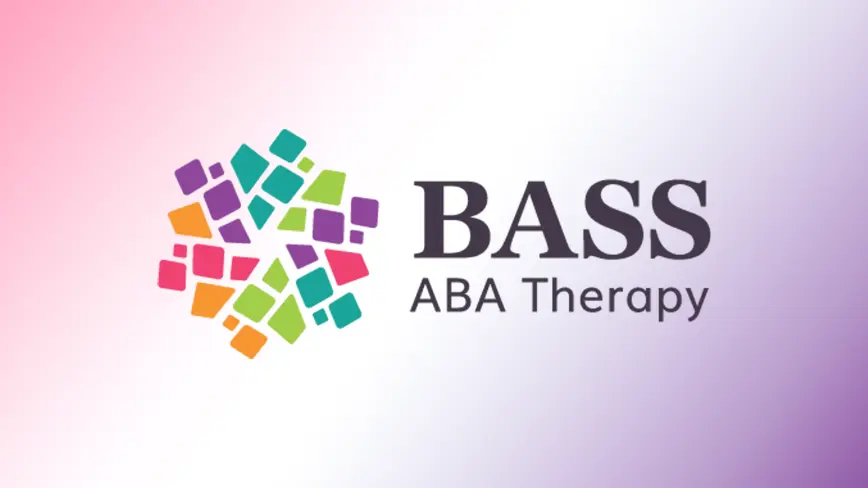In 2025, Medicaid programs implemented significant changes that affect ABA therapy providers nationwide. Because commercial insurers often mirror the policies of government payors, these changes may also influence reimbursement across the broader healthcare landscape. For ABA clinics, staying ahead of shifts in Medicaid funding, billing requirements, and compliance standards is critical, not only to remain compliant but also to safeguard financial stability. Let’s take a closer look at Medicaid and ABA therapy, and what these 2025 changes mean for ABA providers.

What’s Changing with Medicaid in 2025?
The ABA landscape underwent a drastic shift in 2014 when the Centers for Medicare and Medicaid Services (CMS) clarified that state Medicaid programs are required to fund treatments for autism spectrum disorder, including applied behavior analysis (ABA) therapy (Centers for Medicare & Medicaid Services, 2014). Since then, all 50 states have incorporated ABA into their Medicaid programs, each with its own evolving rules regarding coverage, billing, and compliance. Now, 2025 marks another pivotal turning point, as providers face significant policy updates, budget reductions, rate adjustments, and heightened audit activity.
Federal budget cuts are a major driver of Medicaid changes in 2025. With the signing of the One Big Beautiful Bill into law, Medicaid is expected to lose nearly one trillion dollars in funding over the next ten years (United States Congress, 2025). For ABA clinics, this may translate into reduced reimbursement rates, caps on service hours, more stringent claims review, and heightened scrutiny of documentation. Providers should prepare for stricter reporting requirements, including detailed progress notes and treatment data, as well as more frequent audits.
In addition, states are tightening credentialing requirements for both Registered Behavior Technicians (RBTs) and Board Certified Behavior Analysts (BCBAs). These changes underscore the need for ABA clinics to adopt efficient ABA practice management systems that ensure compliance while supporting high-quality care.
![]() Florida
Florida
As of February 2025, Florida Medicaid transitioned behavior analysis therapies into the Statewide Medicaid Managed Care (SMMC) program. To serve Medicaid members, ABA providers must be in-network with the individual’s managed care plan. The Medicaid managed care plans in Florida include Aetna Better Health, Sunshine Health, Florida Community Care, Simply Health, Humana, and UnitedHealthcare (Agency for Health Care Administration, n.d.).
![]() New York
New York
New York has been at the center of discussions about Medicaid budget reductions this year. The Kaiser Family Foundation estimates that New York will lose between $77 billion and $128 billion in federal Medicaid funding over the next ten years (Euhus et al., 2025). Governor Kathy Hochul proposed a budget earlier this year, which included a $30 million reduction for ABA services across the next two years. This included a proposed fee schedule reduction for CPT code 97153 to just $38.52/hour ($9.63/unit), which would be the lowest rate nationwide (CASP, 2025). However, following advocacy from organizations like the Council of Autism Service Providers (CASP) and the New York State Association for Behavior Analysis (NYSABA), a partial restoration was secured. Beginning in October 2025, the CPT code 97153 will be reduced by 12.5%, and a further reduction of 12.5% will take effect on April 1, 2026 (CASP, 2025).
![]() Texas
Texas
In 2022, Texas was the last US state to implement Medicaid benefits for ABA services for children with autism. As a relatively new service, the state continues to refine its Medicaid policies. In 2025, Texas Medicaid implemented changes to its prior authorization requirement. A prescribing provider's signature is no longer needed on the CCP prior authorization request form when requesting a 90-day treatment extension. Additionally, beginning in November 2025, prior authorization requests are transitioning from Magellan Healthcare to Centene Management Company.
![]() Massachusetts
Massachusetts
Massachusetts’ Medicaid program initiated a requirement in 2025 for ABA providers to be accredited. Managed care organizations can only contract with accredited providers. By 2027, all MassHealth-credentialed, center-based providers will be required to be accredited by a nationally recognized accreditation body, such as The Behavioral Health Center of Excellence (BHCOE). Other providers will have until January 1st, 2028, to get accredited (Gonzales, 2024).
![]() Indiana
Indiana
In 2025, Indiana’s Medicaid program introduced significant updates to limit ABA funding, following findings from the Office of Inspector General (OIG) that the state made at least $56 million in improper Medicaid payments for ABA services in 2019-2020 (Office of Inspector General, 2024). Initially, the state planned to cap Medicaid coverage at 30 hours per week for three years. After advocacy efforts, Indiana revised the plan to create a tiered system based on autism severity.
- Level 1 ASD: up to 30 hours per week
- Level 2 ASD: up to 32 hours per week
- Level 3 ASD: up to 38 hours per week
The three-year service cap remains in effect. After completing three years of services, clients may still be eligible for ABA, but only for limited, behavior-specific, focused care tailored to their ongoing needs (Indiana Family and Social Services Administration, 2025).
![]() Nebraska
Nebraska
Nebraska is another state that has implemented significant changes to Medicaid & ABA therapy this year, following a reported 2,000% increase in spending over the past five years. To manage costs and prioritize quality care, they’ve made the following changes and limitations.
- Reduced reimbursement rates
- Hour cap up to 30/week, including no more than 6 direct hours per day
- A requirement of 2-4 hours of caregiver involvement per month
- A review and update of the treatment plan once every 90 days
- Increased supervision requirement for 20% for RBTs (Nebraska
- Department of Health and Human Services, n.d.).
How These Changes Impact ABA Clinics
Medicaid budget cuts and policy changes can carry significant implications for ABA providers, shaping day-to-day operations and long-term sustainability. With an increased focus on compliance and looming budget cuts, ABA providers can anticipate heightened scrutiny from Medicaid in 2025 and beyond.
- Greater Documentation Requirements: Clinics can expect Medicaid to enforce stricter documentation requirements, with data submitted in real-time and treatment notes that comprehensively document session details. Furthermore, although only one state has adopted accreditation requirements, it’s reasonable to anticipate that other states may follow suit. ABA providers may want to begin reviewing their documentation standards to ensure they’re up to par.
- Increased Audit Risk: In the last year, audits in multiple states, including Wisconsin and Indiana, have uncovered millions of dollars in improper Medicaid payments for ABA services. Clinics should anticipate more frequent audits and understand that billing errors can carry higher financial and compliance consequences.
- Credentialing: State-level Medicaid changes can delay MCO credentialing, slowing access to care.
- Tighter Billing and Claim Management: With greater enforcement of proper billing practices, providers can expect to face more frequent claim denials, highlighting the critical importance of pre-billing audits.
- Financial Pressures: Rate reductions may force clinics to absorb rising operational costs at lower reimbursement levels. Combined with limits on service hours, clinics face increased pressure to deliver high-quality ABA therapy within constrained resources. Maintaining clinical excellence while managing tighter budgets and service restrictions will be critical for sustaining both patient care and clinic viability.

How CentralReach Can Help Your ABA Clinic Stay Compliant
Navigating the complex web of evolving Medicaid requirements can weigh on ABA practice leaders. CentralReach is committed to supporting practices with a suite of tools designed specifically for ABA providers to overcome funding challenges. Strengthening your billing workflows and ensuring compliance are essential.
CentralReach’s all-in-one platform helps ABA clinics stay Medicaid-compliant with:
- Medicaid-Ready Billing Systems: With Medicaid rate cuts and increased payor scrutiny, ensuring high clean claims will be vital. CentralReach helps by streamlining claims submission with ABA billing software that’s fully integrated with clinical systems.
- Real-Time ABA Data Collection: Capture and report session data in accordance with Medicaid mandates using customizable data collection tools.
- Credentialing & Supervision Logs: Automatically track staff qualifications, supervision records, and session types, making it easier to meet state-specific supervision guidelines.
- Customizable Documentation Templates: CentralReach allows users to build Medicaid-compliant progress notes and reports tailored to their state’s needs.
Posted in Clinical, Practice Management
You may also like...
Related information and stories
What is RCM?: How Therapy Practices Get Paid
Running a successful therapy practice requires a strong financial foundation. As Gosia Lindfeldt, Director of Business Operations and RCM of Beyond Autism Services, explains, “Any good ABA company can be…
Disconnected Teams, Denied Claims: When Clinical and Billing Don’t Align
ABA billing is one of the most complex aspects of running a therapy practice. Billing workflows can make or break an organization. Clean claims drive steady cash flow and financial…







